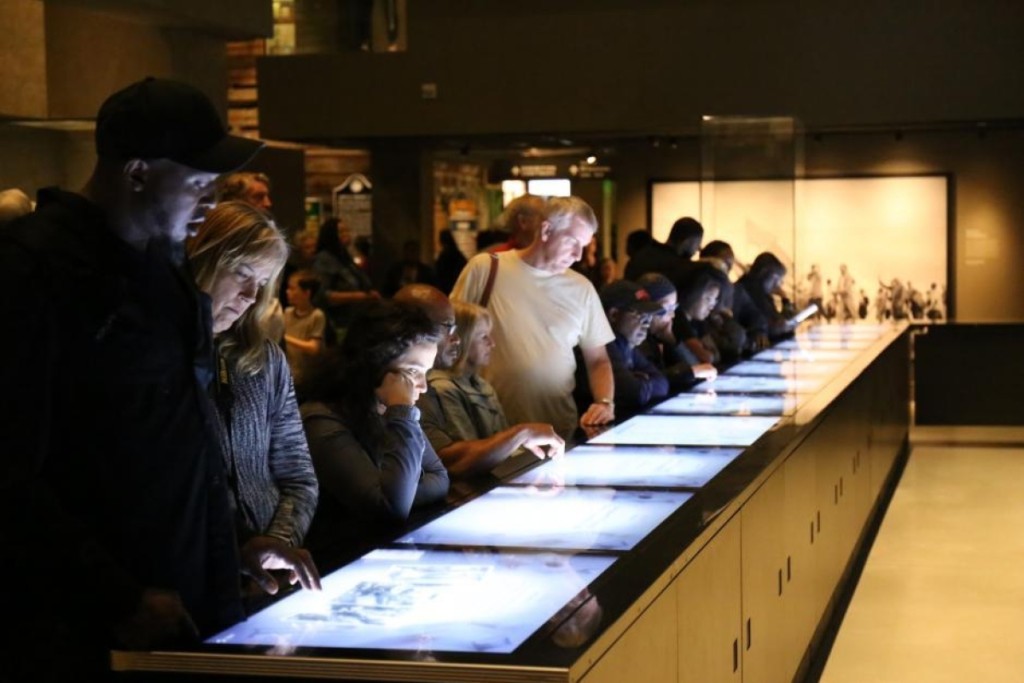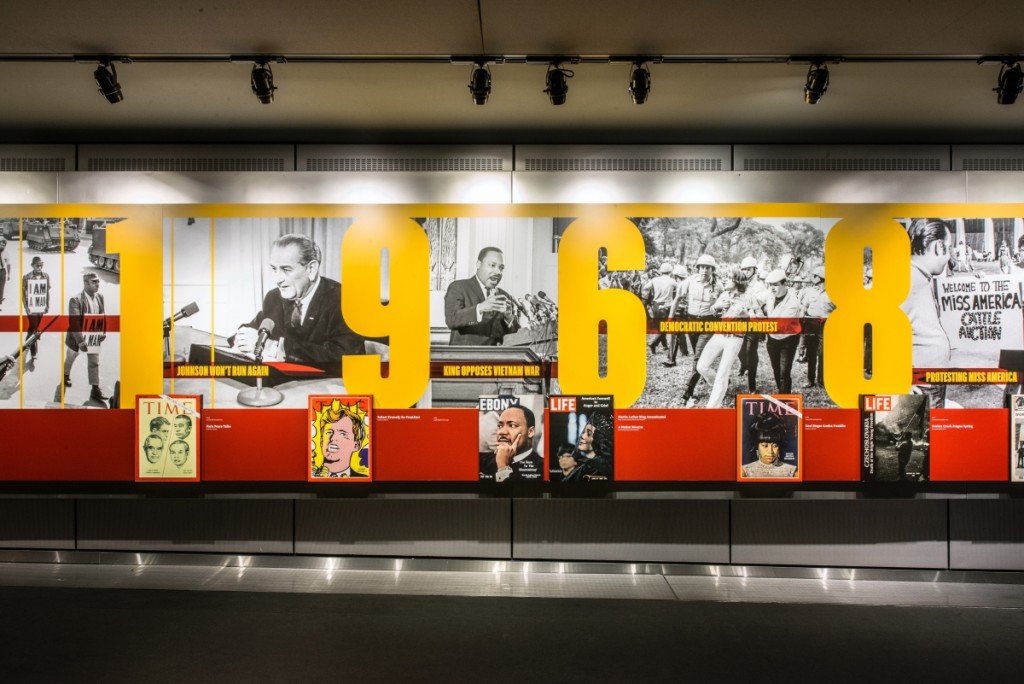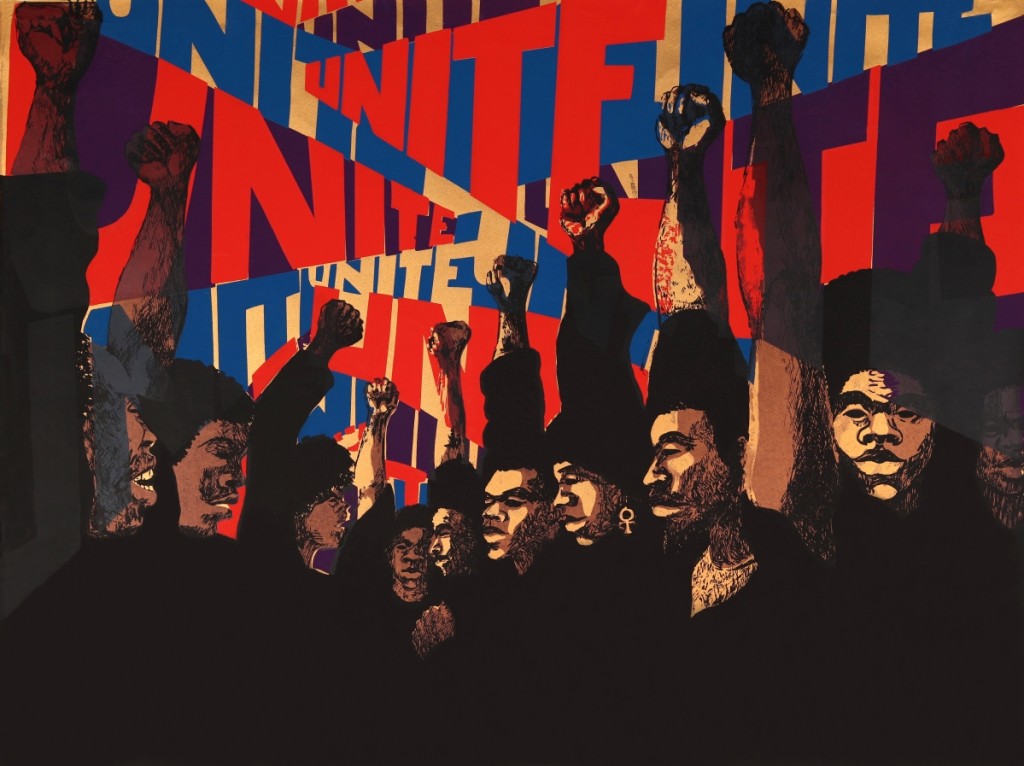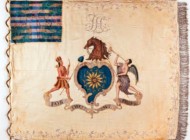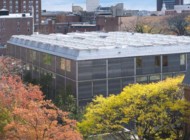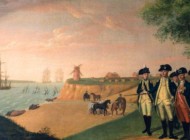Black History Month is being celebrated with a range of exhibitions and special events in various cities around the country in February. From the Smithsonian’s National Museum of African American History and Culture, which opened in September 2016, to special exhibitions in Los Angeles, New York, Chicago, Atlanta and beyond – here are just some of the offerings on view throughout the month.
Washington, DC
The National Museum of African American History and Culture, 1400 Constitution Avenue NW, is filling its mandate to present African American life, history and culture with thousands of artifacts and with installations and personal stories. Upcoming events include a free concert on Sunday, February 26, with the US Army Band, Pershing’s Own, in a performance of chamber music works by African American classical music composers.
The Newseum, 555 Pennsylvania Ave NW, is presenting “967: Civil Rights at 50,” an exhibit exploring civil rights events and actions that took place during a critical year in the struggle for equality in this country.
At the National Archives, 700 Pennsylvania Ave NW, a rare display of the Emancipation Proclamation will be on view February 17-19.
New York City
In New York City where the Harlem Renaissance and hip-hop music were born, and Jackie Robinson broke the color barrier in baseball, the Metropolitan Museum of Art, 1000 Fifth Avenue, is celebrating Black History Month by exploring the rich artistic achievements of sub-Saharan Africa with objects from the Met’s collection of African art.
“Posing Modernity: The Black Model from Manet and Matisse to Today,” is at the Wallach Art Gallery, Lenfest Center for the Arts, Columbia University, 615 West 129th Street, through February 10. It explores the changing modes of representation of the black figure as central to the development of modern art.
Ending February 3 at the Brooklyn Museum, “Soul of a Nation: Art in the Age of Black Power” shines light on a broad spectrum of black artistic practice from 1963 to 1983. Many of the more than 150 artworks in the exhibition directly address unjust social conditions facing black Americans; organized by Tate Modern in London, the exhibition will travel to The Broad in Los Angeles.
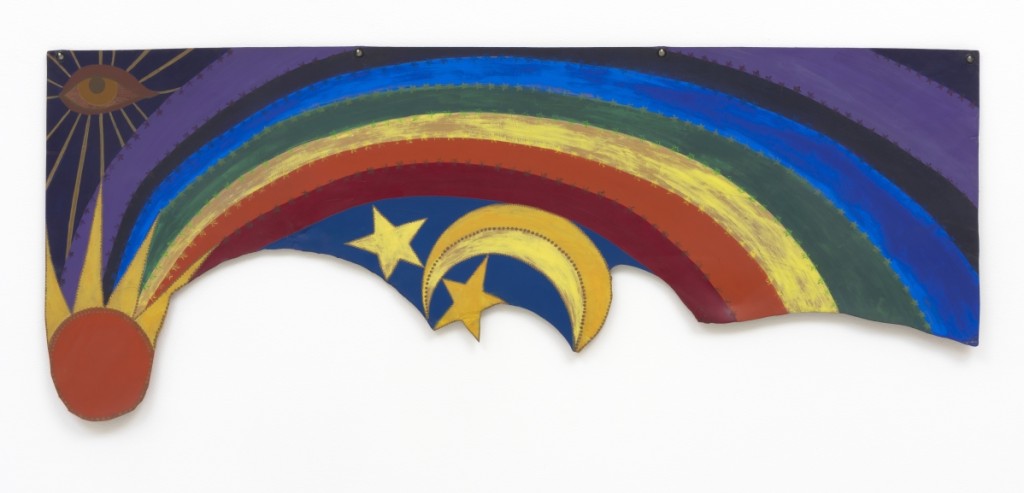
Betye Saar, “Rainbow Mojo,” 1972, acrylic painting on cut leather, 19¾ by 49¾ inches, at The Broad. Courtesy of the artist and Roberts Projects, Los Angeles. Photo: Robert Wedemeyer.
Los Angeles
“Charles White: A Retrospective,” a major survey show organized by Chicago Art Institute and the Museum of Modern Art, NYC, will be at Los Angeles County Museum of Art (LACMA), 5905 Wilshire Boulevard, February 17 to June 9. “Charles White” traces the artist’s career and impact in the cities he called home: Chicago, his birthplace; New York, where he joined social causes and gained acclaim; and Los Angeles, where he developed his mature art and became a civil rights activist. The exhibition includes approximately 100 drawings and prints along with lesser-known oil paintings.
Two concurrent and complementary exhibitions will be on view. “Life Model: Charles White and His Students,” February 16-September 14, will be at LACMA’s satellite gallery at Charles White Elementary School, 2401 Wilshire Boulevard, where the artist taught for many years, and “Plumb Line: Charles White and the Contemporary,” March 6-August 25, will be presented at the California African American Museum, 600 State Drive.
“Soul of a Nation: Art in the Age of Black Power 1963-1983,” March 23-September 1, at The Broad, 221 South Grand Avenue. “Soul of a Nation” celebrates the work of black artists made over two decades beginning in 1963, at the height of the Civil Rights Movement. The exhibition devotes individual galleries either to groups of artists working in a particular city – with three galleries dedicated to artists living and working in Los Angeles – or to a different kind of art production. The exhibition showcases communities engaged in robust artistic dialogues, while also revealing disagreements about what it meant to be a black artist at this time. Artworks in the exhibition range from collage, assemblage and photography to painting, sculpture and performance. Ultimately, the exhibition emphasizes the dynamic contributions of black artists to this significant period in American history and art, the exhibit is making its final (and only West Coast) stop at The Broad.
Oakland, Calif.
Get a Twenty-First Century view of the Black Panther Party at the Oakland Museum of California, 1000 Oak Street. The Black Panther party, founded in Oakland 50 years ago, created programs to benefit people in struggling communities and stood up against power, their actions still inspiring grassroots social justice and community empowerment today.
Atlanta, Ga.
Located in the Sweet Auburn Historic District, Dr King’s birth home is part of the Martin Luther King Jr National Historic Park, 449 Auburn Avenue, NE, which also features his pastoral home church Ebenezer Baptist Church and the King Center established by his wife Coretta Scott King, as well as his and Coretta’s burial place. Each year, the Martin Luther King Jr Center for Nonviolent and Social Change, or the King Center, offers events ranging from performance art shows to lectures and charitable workshops throughout the month.
The APEX Museum’s (African American Panoramic Experience Museum), 135 Auburn Avenue NE, mission is to accurately interpret and present history from an African American perspective in order to help all visitors better understand and appreciate the contributions of African Americans to America as well as the world. APEX celebrates African American heritage with exhibitions that connect African, African American diaspora and Black Atlanta history. It includes exhibits and stories about early African American pioneers and black families who helped transform Atlanta. View artifacts, photographs and multimedia presentations from the past to present.
The Children’s Museum of Atlanta, 275 Centennial Olympic Park Drive NW, will host Black History Month celebrations and events as well as a civil rights parade.
Detroit, Mich.
The First Congregational Church of Detroit features the Underground Railroad Museum at 33 East Forest Avenue; nearby is the Charles H. Wright Museum of African American History, 315 East Warren Avenue, which holds the world’s largest permanent exhibit on African American history. Also on view throughout the month are African American History Day at the Detroit Historical Museum, 5401 Woodward Avenue, and a full month of programs at the Detroit Institute of Arts, 5200 Woodward Avenue. In nearby Dearborn, the Henry Ford Museum of American Innovation, 20900 Oakwood Boulevard, is showing the actual Rosa Parks Bus.
Memphis, Tenn.
With a round of special events and several historic places to visit, Memphis is one of the most important cities in America relating to Black History Month. The National Civil Rights Museum, 450 Mulberry Street, was built around the former Lorraine Motel, the site of the assassination of Dr Martin Luther King Jr. Established in 1991, the museum chronicles the history of the American Civil Rights Movement through more than 250 artifacts, interactive media and permanent exhibits.
Appomattox, Va.
On February 22, as part of the Robert Smalls talk at the American Civil War Museum, 159 Horseshoe Road, Dr Bernard Powers of the College of Charleston will speak on the life of Union military hero and Congressman Robert Smalls. Born into slavery in Beaufort, S.C., Smalls escaped bondage to ultimately promote African American rights as a member of the US House of Representatives.
Chicago
Chicago is a city rich in African American history. The DuSable Museum of African American History is in the historic Hyde Park area of Chicago at 740 East 56th Place (57th Street and South Cottage Grove Avenue) in Washington Park; it unites art, history and culture. The independent museum was developed to preserve and interpret the experiences and achievements of people of African descent, it is dedicated to the collection, documentation, preservation and study of the history and culture of Africans and African Americans. The DuSable Museum’s diverse holdings number more than 15,000 pieces and include paintings, sculpture, print works and historical memorabilia. Special exhibitions, workshops and lectures are featured to highlight works by specific artists, historic events or collections on loan from individuals or institutions. The museum will present events throughout the month of February honoring Black History Month. The museum is named for Jean Baptiste Point DuSable, a Haitian of African and French descent, who in 1779 established the trading post and permanent settlement which would become known as Chicago.
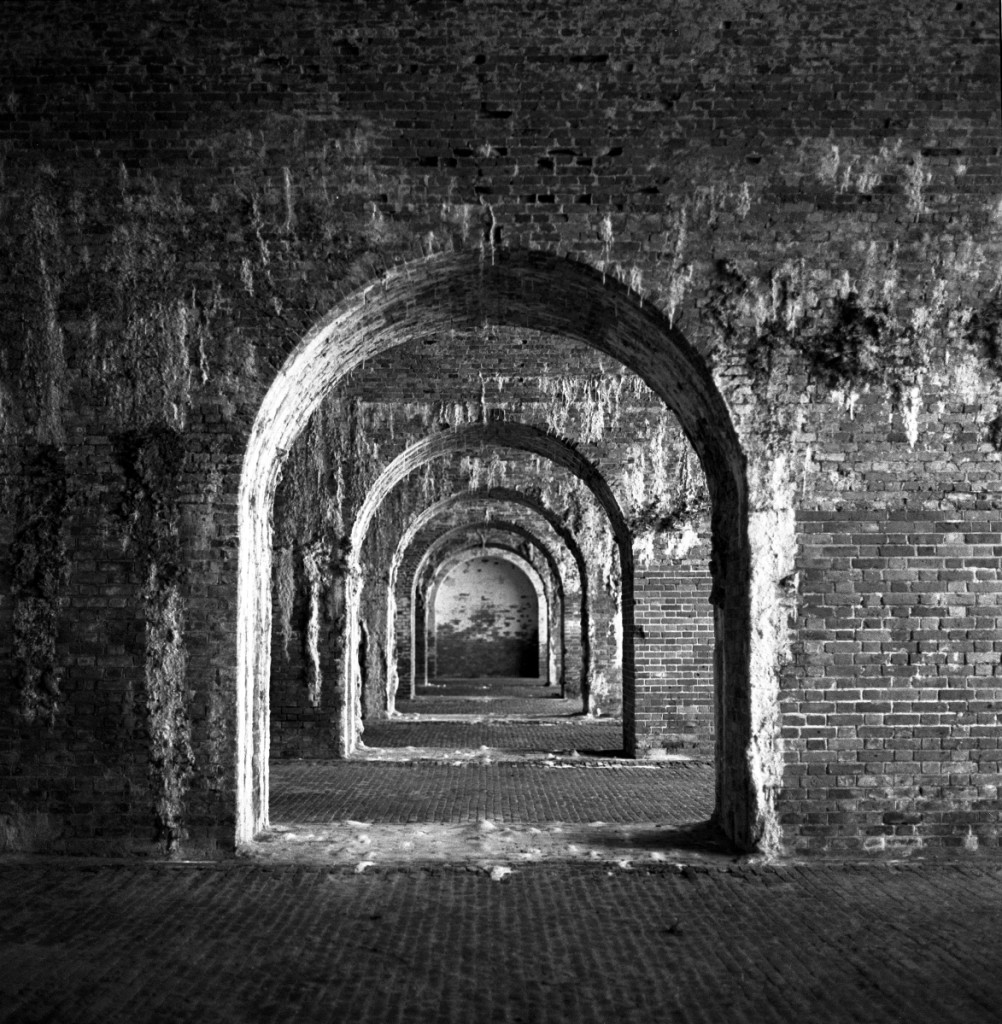
William Williams, Interior, Fort Morgan, Battle Site, 2003, at Syracuse University Art Galleries. Copyright William Earle Williams.
Syracuse, N.Y.
The Syracuse University Art Galleries in the Shaffer Art Building at Syracuse University, is hosting “A Stirring Song Sung Heroic, African Americans From Slavery To Freedom, 1619 To 1865,” on view through March 8. This exhibition features more than 80 contemporary photographic works by artist and curator William Earle Williams, presented alongside related historical objects that together depict the often invisible journey from slavery to freedom in the United States. Allan Trachtenberg, Neil Gray Jr professor emeritus of English and American studies, Yale University has stated, “The fullest effect of William Earle Williams’s achievement in these pictures is the enlightened sense of ourselves as constructive participants in the making of freedom we take away from our experience of these extraordinary visual documents. Williams’s pictures offer a pursuit of a truth that belongs to us all.
Philadelphia
The National Constitution Center, 525 Arch Street, focuses on the lives of African American leaders and the history of the Emancipation Proclamation with exhibits featuring rarely seen artifacts, including some from President Obama’s inauguration. Also throughout February, Philadelphia’s Historic District invites visitors to listen to stories about free blacks in Philadelphia, as well as special performances and more.
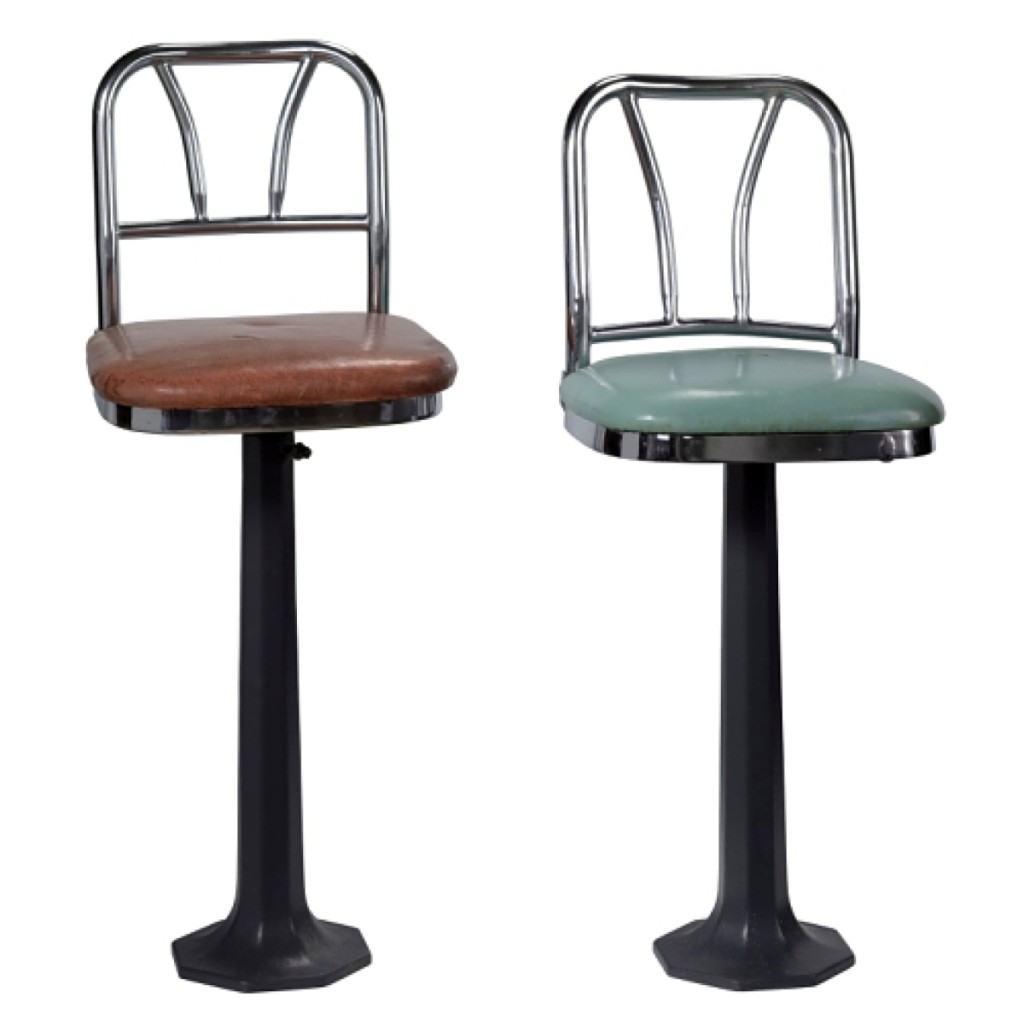
Lunch counter stools from Greensboro, N.C., sit-ins. Manufactured by Chicago Hardware Foundry Co., American, founded 1900, used by F.W. Woolworth Company, American, 1879–1997. Collection of the Smithsonian National Museum of African American History and Culture, donated by the International Civil Rights Center & Museum, Greensboro, N.C.
Kansas City, Mo.
The Negro Leagues Baseball Museum, 1616 East 18th Street, celebrates the history of African American baseball from the late 1800s through the 1960s. The complex is shared by the American Jazz Museum, which showcases contributions of African American musicians. Both are presenting exhibitions and performances in celebration of Black History Month.
Denver
Celebrate the contributions of African American cowboys and other African American men and women who helped settle the American West at the Black American Western Museum and Heritage Center, 3091 California Street; it is housed in the former home of Dr Justina Ford, the first licensed African American female doctor in Denver.
Baltimore
Celebrate Black History Month at the B&O Railroad Museum, 901 West Pratt Street, February 1-28. The B&O Railroad Museum celebrates the contributions of African Americans to the railroad industry. Learn about these men and women who filled vital jobs along the B&O Railroad’s line and understand how significant social issues, such as segregation, affected railroading.
Historic Ships in Baltimore, Pier 1, 301 East Pratt Street. In honor of Black History Month, the “To Catch a Thief” tour of the USS Constitution, will be held every Saturday and Sunday in February. During the three years immediately before the Civil War, the USS Constitution served as flagship of the navy’s African Squadron, she led this nation’s fight against the trans-Atlantic trafficking of slaves, capturing the slave ship Cora and freeing the cargo of captured Africans.
Portsmouth, N.H.
The Black Heritage Trail of New Hampshire (BHTNH) will hold its Elinor Williams Hooker Tea Talk series on six consecutive Sundays, from 2 to 4 pm, February 3 through March 10. All talks are free and open to the public, unless otherwise noted. This year’s theme is “That Which Divides, That Which Unites.” Executive director JerriAnne Boggis said, “We chose this theme because it feels as if the country is once again fractured, divided along political, ideological and racial lines. We wanted to explore the aspects that divide us and discuss ways in which we could bridge the divide.”
Presented by the BHTNH in partnership with the Portsmouth Public Library, these Sunday afternoon “Tea Talks” are named in honor of Elinor Williams Hooker, a long time New Hampshire resident, educator and activist, and the wife of Thomas L. Hooker, who served from 1966 to 1974 as director of the New Hampshire Division of Welfare. For information, www.blackheritagetrailnh.org/programs/tea-talks.
Special note:
Due to the government shutdown, which is, as of publication, still ongoing, most of the government related venues are closed. Please check before visiting these locations.

